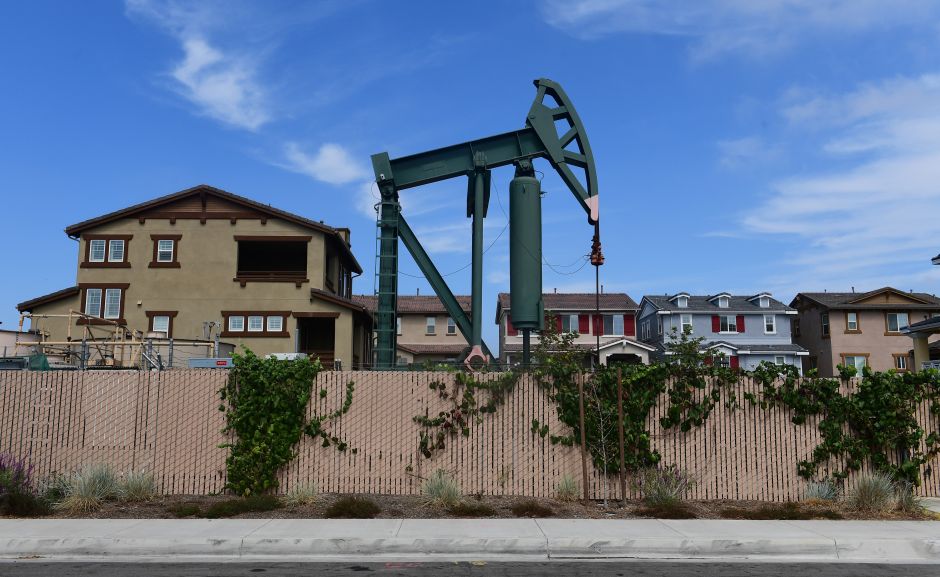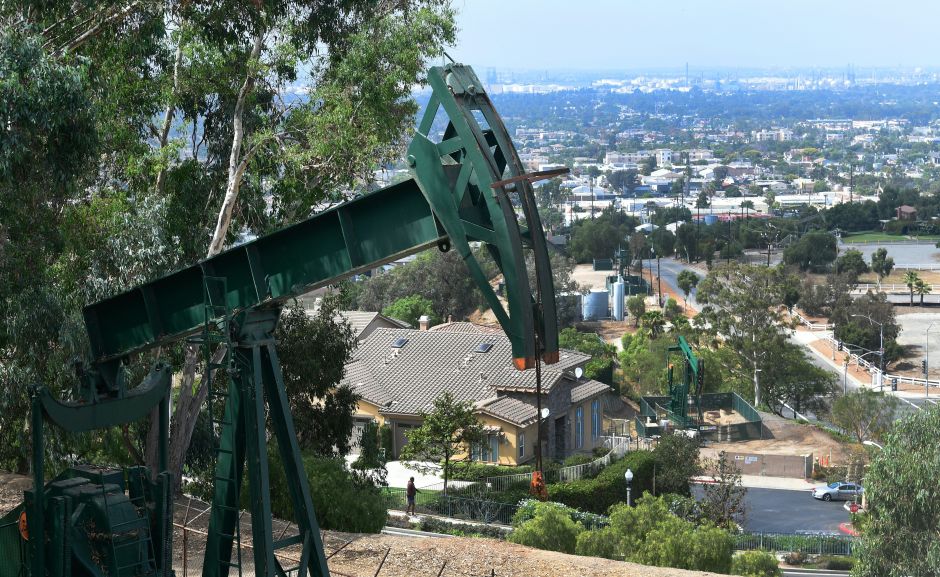Los Angeles is full of cinema, palm trees and sunny skies but the drilling areas stain the publicized idyllic landscape
Los Angeles is synonymous with cinema, palm trees and sunny skies. But this metropolis of almost 4 million inhabitants is also the largest urban oil field in the United States.
Hundreds of active wells are located in densely populated neighborhoods of the county and mostly low-income, near houses, schools, parks, shopping centers and cemeteries.
These drilling areas they are not new and in fact they have been part of the landscape for decades, but residents and environmental activists have begun to raise their voices against these facilities that, they say, pose a risk to public health and believe they should be phased out.
“These oil wells they shouldn't be in our communities“Martha Dina Arguello, director of the Los Angeles chapter of the NGO Physicians for Social Responsibility and co-president of STAND-L.A., A community coalition that works to eradicate urban oil drilling, told AFP.
"Are source of air pollution and part of the climate crisis“, He continued, standing in front of a well located in a residential neighborhood in the northwest of the city, adjacent to three schools and a park. "How much does the gain have to be to justify exposing all people to the risk of a catastrophic accident?"

"Nobody cares"
The rejection of exploitation in urban areas led several local legislators and activists to ask for ban on new drilling permits in California, and the creation of a 760 meter protection area around all the wells in a neighborhood.
The matter was addressed in an open town hall at the headquarters of the mayor's office and also by the Swedish climate activist Greta Thunberg in a demonstration earlier this month.
Amalia Sánchez, who spoke at the town hall meeting, said that many of its neighbors in the working-class neighborhood of Wilmington, to the south, suffer from asthma and headaches.
“People wonder why I still live here, but where else can I go, I don't have money to pay more rent“, This 62-year-old woman who was recently diagnosed with a lung tumor told AFP.
"Nobody cares about us because we are poor“, He added, ensuring that a foul smell of oil is breathed throughout the area.
Further north, in another oil neighborhood near the University of Southern California (USC), Anna Parks warned of cases of "children bleeding from the nose, respiratory problems, headaches related to the fumes emanating from the operation" .
“I thought Los Angeles was a movie city, but it's really a oil city“, Warned this student counselor who moved from Seattle 20 years ago and today integrates a community group that seeks to raise awareness about the issue.
"The favorite park of my (three) children when they were young was located 350 yards (320 m) from a drilling site, they have breathed the toxins from oil drilling all their lives."
Prohibition "de facto"
Perhaps there is no other area in which the oil industry is more present than in Signal Hill, 35 km from Los Angeles and sometime called "Porcupine Hill" because of the amount of rockers in the area.
Today there are dozens who operate in this small enclave, between houses and residential buildings.
And although many neighbors bet on the end of production, in in line with California's commitment to lower its carbon emissionsOthers fear the impact it can have on the economy.
"If we close all these facilities, where will all the workers go?" Said a man sitting in a cafe with a pump operating in his parking lot. "We need to keep people employed and keep income from taxes."
Members of the local industry – which produced in 2018 about 12 million barrels, half that 10 years before, according to official figures – they are skeptical about environmentalists' alerts.
"An arbitrary setback amounts to a de facto production ban in Los Angeles," said Rock Zierman, executive director of the California Independent Petroleum Association, which noted that Los Angeles has "the toughest regulation on the planet."
"It would mean that thousands of workers would lose well-paid jobs, the city would lose tax revenue to resolve priorities such as homelessness, and it would mean the need to import more oil from countries that do not respect environmental protections or human rights."
By Jocelyne Zablit
MS-13 changes style but its activity is still bloody. This is how they identify their gang members now
It could be a Thanksgiving speech but it became a shock of Trump's anger
They immigrated to the US but were deported from Mexico. Now they send their children to cross the border alone








